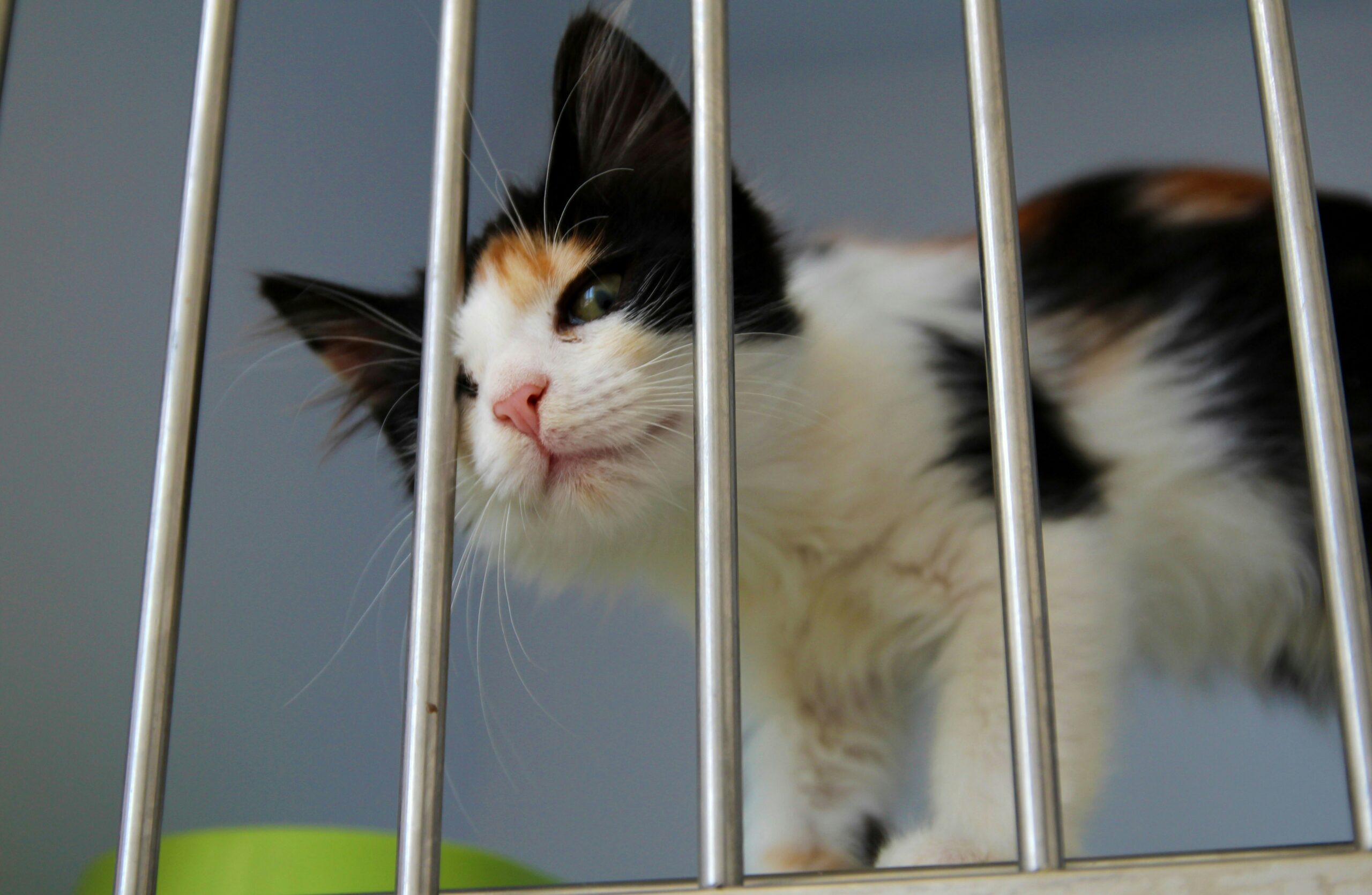So! You’re ready to welcome a feline friend into your life; that’s fantastic news! Let us then discuss the choice that’s close to the heart of many animal lovers – deciding whether to adopt a cat from a shelter or a breeder. Consider though, that it isn’t just about finding a pet; it’s also about making a responsible decision that aligns with your values and lifestyle.
You might be weighing the pros and cons of each, possibly dealing with some common misconceptions. Some folks are under the impression that shelter cats come with too many question marks, or that breeder cats are the only way to ensure the healthiest pal. As we delve further into both options, please remember that a cat is a significant commitment, and your decision will not only affect your life but also impact the lives of the animals and the community involved in animal welfare.
We’ll address some critical factors that you’ll want to reflect on before taking the leap. Taking a peek at some statistical insights, it’s widely known that many shelters are overpopulated, while breeders are often associated with catering to specific needs for pedigreed cats. Adopting from a shelter, you could be giving a second chance to an animal in need. On the other hand, going through a breeder may offer the opportunity to know the cat’s history and assure certain breed-specific characteristics.
Choosing the right source for adopting a cat carries a significant weight. It’s not just about availability or cost; it’s a complex decision that extends into the realm of animal welfare. Opting for a shelter can contribute to reducing the high number of cats that are, unfortunately, euthanized every year due to space and resource limitations. Choosing a reputable breeder, conversely, supports best practices in cat breeding and genetics.
Understanding both the personal implications and the broader societal impact of your choice is essential. Keep in mind that either route requires thoughtfulness and research. You might find yourself aligned with the concept of ‘adopt, don’t shop’, advocating for a shelter adoption. Or perhaps you have specific needs that only certain breeds can meet, and thus a breeder seems more fitting. Whichever path you’re leaning towards, let’s go deeper into the pros and cons of each to help you make a well-informed decision.

Adopting from a Shelter
So, you’re thinking of adopting a cat and giving it a furrever home. That’s a wonderful decision! Now, the next step is to figure out where your new friend will come from. Let’s talk about what to keep front of mind when considering adoption from a shelter.
Adopting from a shelter is more than getting a new pet – it’s about saving a life. Did you know that millions of cats end up in shelters annually, and many are not adopted? By choosing a shelter, you’re reducing those grim statistics and possibly saving a cat from euthanasia. It gives cats that are often overlooked a second chance at a loving home.
Shelters are treasure troves of diversity. You’ll find cats of every color, size, age, and temperament waiting for someone to pick them. It’s not just about mixed breeds, either. Surprisingly, a good number of purebred cats also end up in shelters, so if your heart is set on a particular type, you still might find what you’re looking for.
Most shelters evaluate the health and behavior of animals before putting them up for adoption. This means your potential pet will likely have received vaccinations, a general health check, and may even be spayed or neutered. However, it’s essential to acknowledge that the complete genetic and medical history might not be known, which can be a concern for some.
The financial benefit is pretty clear. Adoption fees at shelters are significantly less compared to buying a cat from a breeder, and these shelter fees often include the costs of the health care services the cat already received, making it a financially sensible choice.
And finally, every cat adopted from a shelter means you’re supporting the shelter’s mission. Most shelters are non-profit organizations that rely on adoption fees and donations to keep running. Your choice to adopt from them helps ensure they can continue their crucial work in animal welfare.
Now, keeping these shelter dynamics in mind, let’s take a look at the breeder option. Choosing to go with a breeder comes with a different set of considerations, and it’s important to address these to make sure your decision is as informed as possible. Stay with me; we’re going to pounce on that next.

Going the Breeder Route
So maybe instead of adopting from a shelter, you’re leaning towards buying a cat from a breeder. If so, you must be aware that being selective is crucial. Your breeder choice is not a decision you should make lightly, even if you have your heart set on a specific breed of cat.
Without question, understanding the breeder’s reputation is imperative. Credible breeders prioritize the well-being of their cats and are transparent about their breeding practices. With a reputable breeder, you can access detailed health records and the history of the breed, which can clue you in to average temperament and potential health issues.
However, it is vital to recognize that not all breeders operate with the highest standards. Unethical breeders prioritize the features of their cats over their health, with many keeping cats in deplorable living conditions in order to maximize profit. To avoid supporting such practices, you must be sure you’re working with a reputable breeder, and that’s why doing your homework on the breeder’s ethics and practices is essential.
Turning to cost, purebred cats will most likely have a significantly heavier price tag, reflecting the breed-specific care, specialized health testing, and resources necessary to raise them. There may also be breed-specific expenses to consider as well, such as monthly trips to the groomer, or things like exercise wheels for highly active breeds.
It’s also important to note that buying from a reputable breeder might involve waitlists. These breeders are typically in demand and don’t always have available kittens immediately. Patience is a virtue here, but it’s one that can lead to a rewarding outcome.
Final Thoughts
Adopting a cat is more than just gaining a new companion; it’s a significant commitment that spans the many years of your furry friend’s life. That’s why it’s crucial to weigh your options and make an informed choice when deciding between adopting from a shelter or a breeder.
You need to consider your lifestyle, living situation, and what you’re looking for in a cat. Do you have the time and resources to care for a potentially high-maintenance breed from a breeder? Or does the thought of giving a shelter cat a second chance at life tug at your heartstrings?
Remember, finding your purrfect companion may not happen the first time around; you may need to revisit places like shelters and adoption cafes until you feel a true connection. The most important thing is to choose a kitty that resonates with you—as this decision will impact both your life and the life of your new cat for years to come.
Another thing to keep in mind is that responsible adoption goes beyond just a personal preference. The ethical implications of your choice reach into animal welfare and the efforts to combat overpopulation, abuse, and abandonment.
It can be extremely helpful to speak with veterinarians, shelter staff, and seasoned cat owners, in addition to thoroughly vetting any breeders you might consider. Their insights, experience, and transparency levels can provide vital information to guide you in your decision-making process.
So! The question for you today is, which path feels right to you? Just like taking the time to find a true connection with a new kitty, the answer to that question might not be immediate. But, whichever you choose, ensuring a loving, safe, and stable home for your cat is what truly matters. Let’s make the world a little better, one happy cat at a time.
